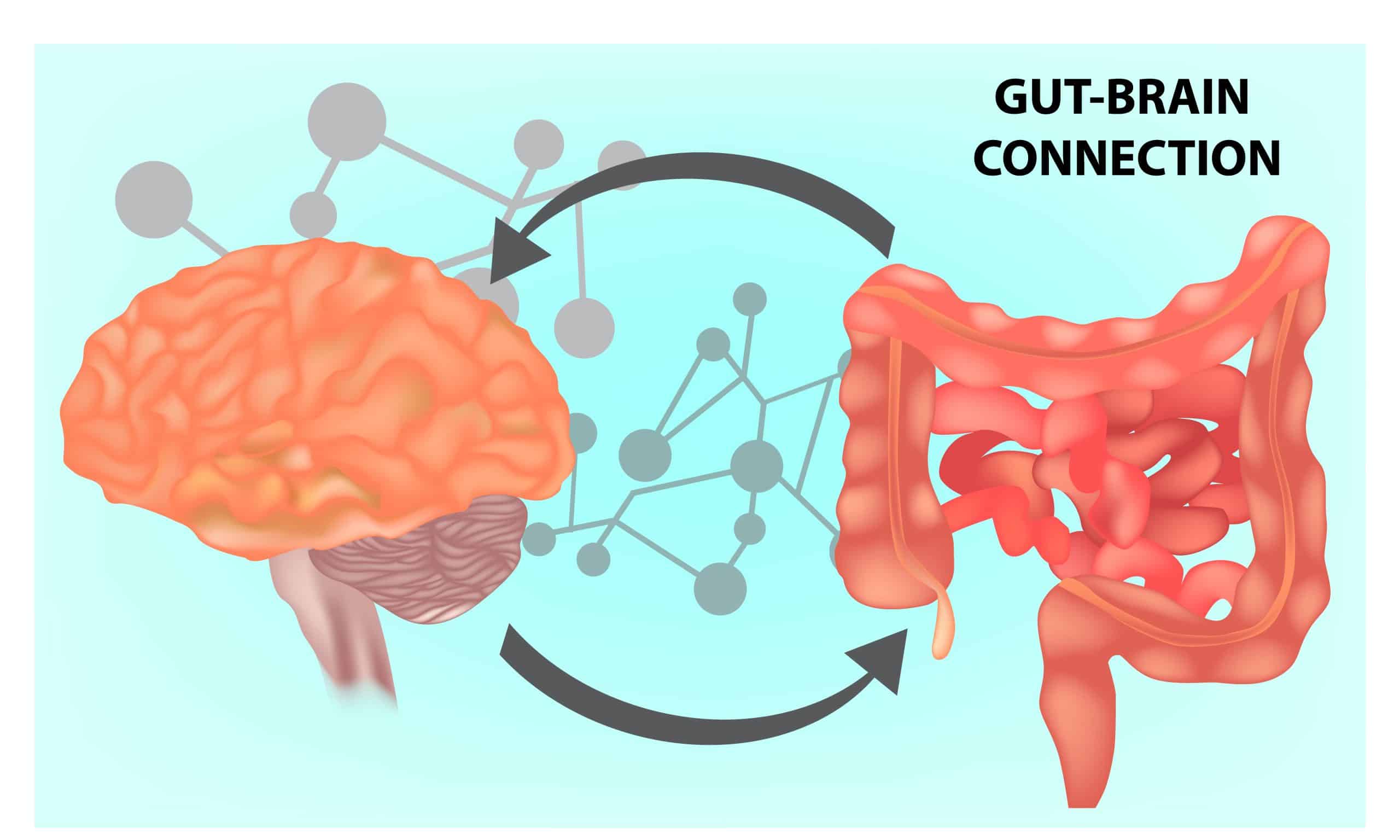
Have you ever had an instinctual sense about something that seemed to originate from your gut, or have you ever felt butterflies in your stomach? These feelings indicate that your brain and gut are connected.
Concealed within the walls of your digestive system is your enteric nervous system, or your “second brain.” Your brain and gut communicate with each other through a system called the gut-brain axis. This knowledge is transforming our perception of the connections between gut health and several aspects of overall health, such as brain function, the immune system, and mood.
Disturbances along the gut-brain axis may heavily contribute to the pathogenesis, or manner of disease development, of many neurodegenerative diseases, such as Alzheimer’s disease. This not only deepens our understanding of Alzheimer’s disease but also provides a potential avenue for novel therapeutic approaches.
Let’s explore the link between the gut-brain health connection and Alzheimer’s disease as well as how this concept may pave the way to future Alzheimer’s treatments.
The gut microbiome is the collection of microorganisms living in your digestive tract, including bacteria, archaea, viruses, and fungi. Researchers have discovered that the gut microbiome and the brain communicate with each other bidirectionally. In other words, your gut microbiome can affect brain functions, and brain functions can affect your microbiome.
In vitro, in vivo, and human studies found links between changes in the gut microbiome and functional changes in the brain. This suggests that the microbiome impacts aspects such as stress, anxiety, depression, and cognitive function.
Based on the concept that the gut microbiome and cognitive function are connected, studies are being conducted that specifically assess how the gut-brain health connection and Alzheimer’s disease may be linked.
The gut-brain axis involves pathways, such as metabolic, immune, endocrine, and neural, that are essential for maintaining brain homeostasis. It’s believed that gut dysbiosis plays a part in the development of Alzheimer’s disease and other conditions such as cardiovascular disease and type 2 diabetes mellitus. Gut dysbiosis refers to abnormal changes and reductions in microbial diversity in the composition of microorganisms living in the digestive tract.
An increasing amount of experimental and clinical data confirms that gut dysbiosis plays a key role in neurodegeneration. More specifically, in Alzheimer’s disease, gut dysbiosis may promote beta-amyloid aggregation, neuroinflammation, and oxidative stress, all of which contribute to the development of Alzheimer’s disease. Simply put, dysregulation of the gut microbiome causes imbalances in the community of microorganisms in the gastrointestinal tract.
Additionally, alterations in the gut microbiome composition may lead to increased permeability of the gut barrier and immune activation, causing systemic inflammation. This inflammation may impair the blood-brain barrier, thereby promoting neuroinflammation and neural injury. This can ultimately lead to neurodegeneration.
This new understanding of the gut-brain health connection and Alzheimer’s disease may pave the way to future therapeutic approaches.
With the understanding that alternations in the gut microbiome contribute to the pathogenesis of Alzheimer’s disease, researchers are beginning to explore potential novel therapeutic approaches.
The relationship between the gut microbiome in the development of Alzheimer’s and gut dysbiosis, increased permeability of the gut barrier, and neurological dysfunction may pave the way for new interventions. Potential therapeutic approaches include:
When implementing changes with your physician with the intent to improve your gut-brain health, you will need a way to measure how your brain health is improving or changing over time in a quantifiable manner.
Altoida’s mission is to accelerate and improve drug development, neurological disease research, and patient care. To learn more about our precision-neurology platform and app-based medical device, contact us!